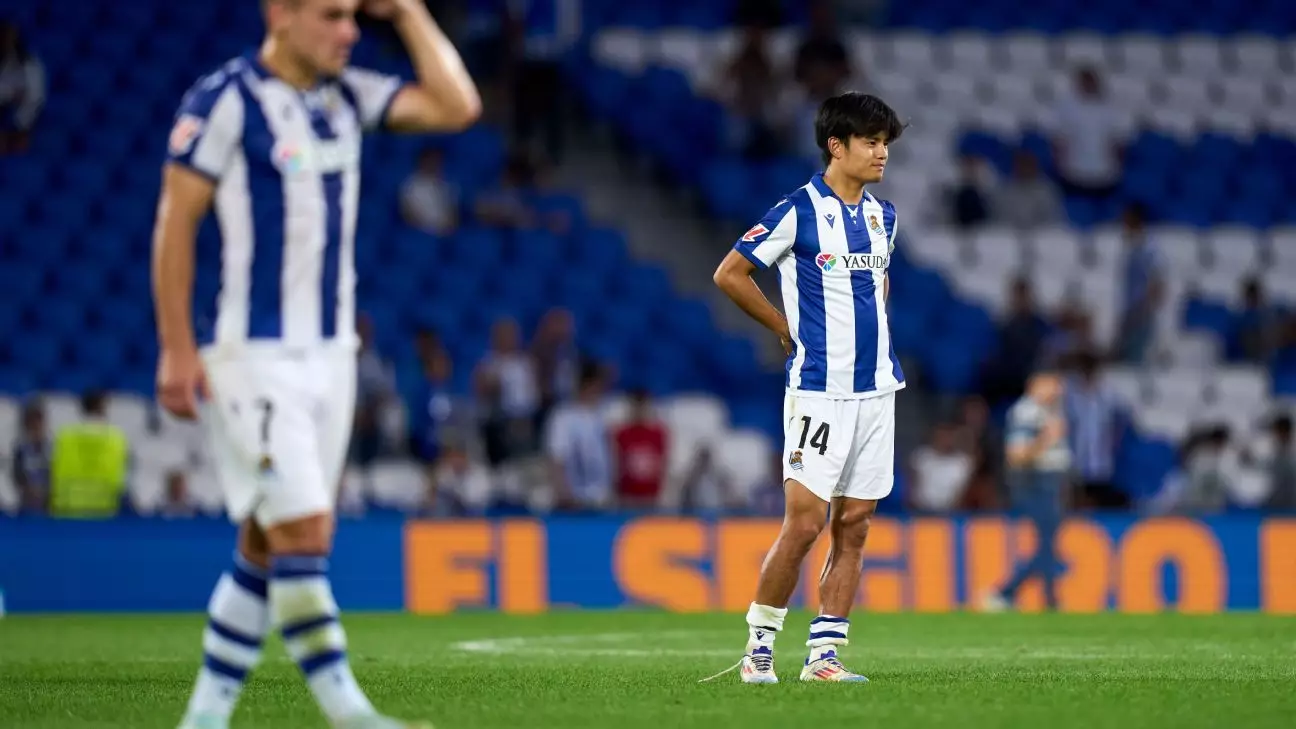The recent match between Valencia and Real Sociedad highlighted a troubling issue that continues to plague sports: racism. Fans witnessed a disturbing display at the Mestalla stadium during the warm-up of players Takefusa Kubo and Ander Barrenetxea, both of whom were subject to racist abuse. Such incidents detract from the spirit of the game and reflect a significant cultural blind spot that must be addressed head-on. Real Sociedad promptly condemned the behavior, sharing a video on social media to document the abhorrent actions of a minority of fans.
In light of the incident, Valencia’s club management swiftly issued a statement condemning the racist remarks and asserting that the actions of a few do not represent the inclusive values upheld by the club. Valencia reinforced its commitment to collaborating with authorities to identify individuals responsible for the hostile behavior and to impose strict sanctions. This commitment is crucial in an era where football holds the potential to unite diverse cultures and communities. By taking a stand against discrimination, Valencia sets a precedent for other clubs to follow and emphasizes the need for zero tolerance towards racism, ensuring fans and players feel safe and respected.
Previous Responses and Ongoing Challenges
This isn’t the first time racism has reared its ugly head in Spanish football. In a notable case from June, Valencia’s Magistrate’s Court issued Spain’s first conviction for racism inside a stadium following racial slurs aimed at Real Madrid’s Vinícius Júnior. This landmark ruling indicates incremental progress in handling such incidents, but the road ahead remains long and demanding. Vinícius himself has vocally advocated for systemic changes, even suggesting that Spain should lose the rights to host the 2030 World Cup unless tangible efforts are made to eradicate racism.
In response to increasing incidents of racist abuse, both LaLiga and the Spanish Football Federation are actively implementing measures aimed at countering this pervasive issue. These initiatives include partial stadium closures, punitive sanctions against offending clubs, and broader educational campaigns that seek to raise awareness among fans. However, the effectiveness of these measures largely depends on consistent enforcement and the commitment of clubs to maintain an inclusive environment. Support from the Spanish government signals recognition of the issue, but true change will only materialize through collective action across all levels of football.
The recent events at Mestalla serve as a stark reminder that while progress has been made, the fight against racism is far from over. It is crucial for players, clubs, and governing bodies to stand united against any form of discrimination. Fans play a vital role as well; they must actively reject bigotry and create an atmosphere of camaraderie. As the global sports community continues to grapple with this age-old problem, the collective response must reflect a commitment to not just acknowledge racism but also to eradicate it. Football, as a universal language, should be a battleground for equality and respect, where every player, regardless of their background, can thrive unhindered.

